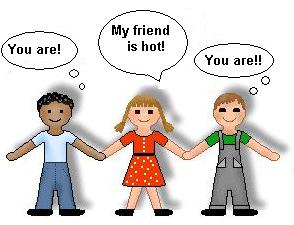First month of blogging! Thanks, guys! This has been very, very fun! So great to read your thoughts – in the questions section, and all over!!! Merci! The parts of the blog from this month that I’ve liked the most have been the topics about the brain, the answers that you guys put down to the questions, and the stories. Highlights from July:
The Brain
Write Like a Map! – super interesting comments to this post!
You Are What You Say
Thinking Styles: “You Talkin’ to Me?!â€
This is the section I’m most psyched about this month. I started off writing about Positive Psychology, and went toward the brain and expertise.
Positive Psychology
James and James: SNAP Habit Training (habits)
In a Bad Mood? Pretend You’re Giving Advice to Your Friend
Introducing … ASSESSMENTS!
Intuition & Fun
Three Components of Intuition
Tanabata – Make a Wish Today! – see the stupendous streamers Dave made for Tanabata!
Stories (Tuesdays)
Wasn’t Your ‘Maybe’ a ‘Yes’? by Senia
The Girl Who Became a Flower by Senia
Vito’s Treasure by Vito (a guest author for this blog’s stories!)
Warm Fuzzies by Claude Steiner
Quotes (Thursdays)
The past just-over-a-month includes quotes on courage, action, details, self-knowledge, the universe, and freedom.
Questions (Fridays+)
What actions have you spend the most TIME developing?
How do you become an expert? – super interesting comments!
Why? – beautiful answers
Which is your favorite room in your house?
Who are you happiest around?
What’s the best thing in the world? – gorgeous answers
Picture of the Month

More to come especially about the Brain, Expertise, and Intuition. Mucho thank you!
:) S.



